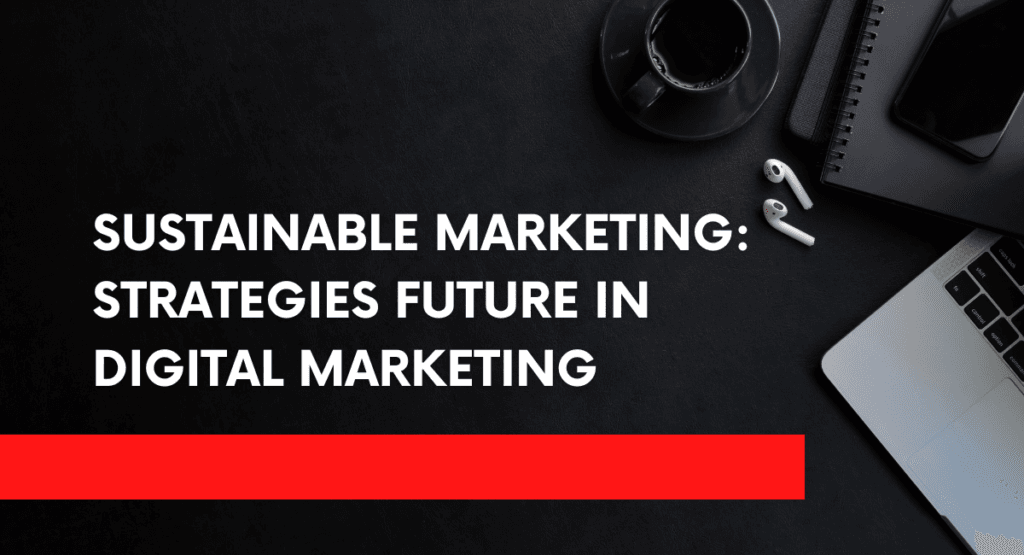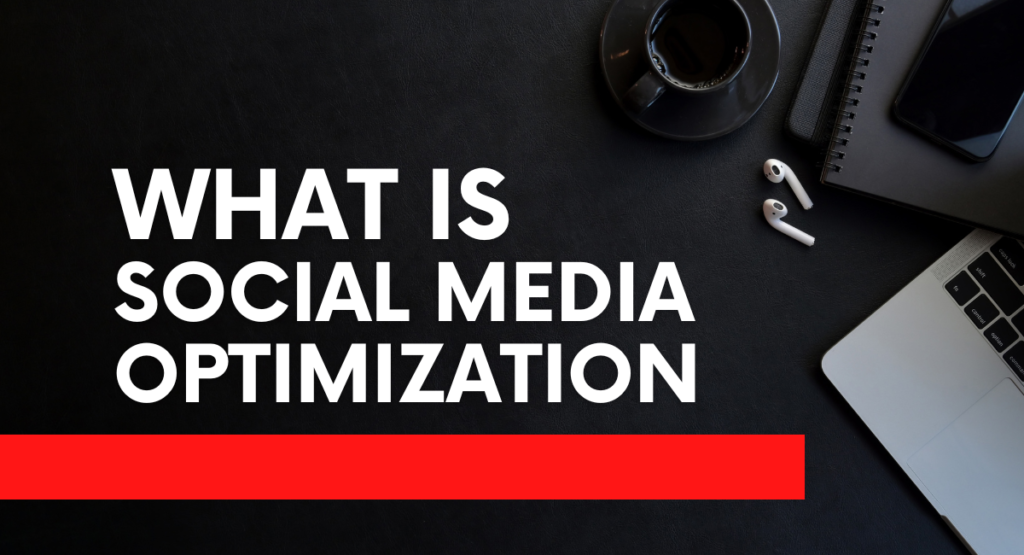Introduction
Sustainable marketing involves environment-friendly strategies towards achieving business objectives by being in sync with the value and accountability to the environment, with regards to the expectations of consumers. It calls for sustainable practices in the form of digital marketing as the level of consumption goes hand-in-hand with being environmentally conscious. Growth over a period of time with positive social influence would always attract the more environmentally-conscious audience.
Overview of sustainable marketing in the context of digital marketing.
Eco-friendly solutions are used within sustainable marketing in the space of digital marketing; it also interacts with green technologies, value-based advertising, content designed for responsible consumption, and more energy-effective means through channels. So, it leads a brand to more ethical consumerism, a reduction in waste, and higher long-term engagement in digital.
The growing importance of sustainability in today’s business environment.
Customers demand environmentally concerned brands. Sustainability becomes a reason for purchases among millennials and Gen Z. A business that adheres to sustainable practices earns customers’ trust and loyalty while providing them with an advantage over the competition. It’s a win-win situation for the environment and for branding.
Why businesses should start adopting sustainable marketing practices now.
Sustainable marketing practices will make businesses relevant in the eco-conscious marketplace. Sustainable marketing gives a competitive edge. Consumers are more informed and demand brands that share their values. Sustainability promotes long-term brand loyalty, saves cost, and promotes innovation; this will both help the business and the environment.
The Concept of Sustainable Marketing in Digital Marketing
Sustainable marketing is the use of green practice for marketing on digital media; long-term value creation without harming the environment and appropriate behavior for the consumer.
Definition of sustainable marketing.
The marketing of a product and services will help the environment and people over the long term to survive for generations without losing a necessity.
The role of sustainability in shaping modern marketing practices.
Sustainability molds marketing because it drives consumer choice, increases the demand for environment-friendly products and forces business houses to be responsible, hence creating brand loyalty and trust.
How digital marketing is uniquely positioned to drive sustainability.
It offers scalable solutions to drive sustainability, waste as an outcome of physical marketing materials and use of data-driven strategy more effective towards the conscious consumers of the environment.
Key Strategies for Sustainable Marketing
Sustainable marketing involves content creation, marketing of green products exploitation of green technologies, and creation of long-term relations with the consumer for responsible behavior of the consumer.
Focus on eco-friendly content creation and production.
The process of creating content in a way of production that has an environment-friendly aspect is while ensuring the minimization of digital waste, supporting of green initiatives, and the fact that content is supportive of sustainable products or services.
Leveraging green technologies for more efficient digital campaigns.
Green technologies in digital marketing also include energy-efficient platforms, reductions in carbon footprints as a result of campaigns, resources optimization, and delivery of the environmental message to consumers.
Promoting products/services with sustainability credentials.
Such products can be underlined to have sustainability certificates or be environmentally friendly, hence attracting more consumers who care for the environment, and in this case, further confirm that the brand intends to reduce its environmental footprint and building consumer trust.
Prioritizing long-term customer relationships over short-term gains.
Long-run customer relationship, as opposed to short-term gains, sustains marketing care to build on a long time relationship, not about generating revenue in one period customer loyalty, trust, shared values provide brand guarantees longrun success and minimizes churning.
How Digital Marketing Channels Contribute to Sustainability
Some of the digital marketing channels that could help brands to deliver the sustainability message include social media, SEO, and email. These channels could help in decreasing the dependency on traditional forms of advertising and increasing the engagement of audiences who are sustainability-oriented.
Social media: Creating awareness and engaging consumers.
Social media will amplify the messaging about sustainable activities and make the people increasingly aware of and more engaged in conversations about these practices; it connects businesses with green consumers and community-driven initiatives for the cause of the environment.
SEO: Optimizing content for relevance and reducing wasted energy.
Content optimization for relevance and reduction of unwanted wastage of energy. SEO delivers content to the right audience; it optimizes long-tail keywords and reduces unwanted traffic, which increases organic reach and, hence, less wastage of energy through digital marketing.
Email marketing: Personalized, meaningful communication that reduces waste.
Email marketing is the process of communicating relevant content to a set of targeted customers in an eco-friendly approach with zero wastage so that the engagement towards the sustainable product or any initiative taken can be increased.
Influencer marketing: Collaborating with eco-conscious influencers to promote sustainability.
Collaborate with sustainability-promoting influencers in order to boost the reputation of your brand, awareness of environment-friendly products and reach audiences that believe in values and behaviors attached to sustainability.
The Role of Data in Sustainable Digital Marketing
This will mean business data analytics can reduce digital waste, optimize ad spend, target conscious consumers who are highly concerned about the environment. Their marketing campaigns will be relevant and aligned with sustainability goals.
Using data analytics to minimize waste and maximize efficiency.
Data analytics allows marketers to determine which campaigns are high performers, optimize resources, and cut waste by optimizing strategies with the knowledge that content is going to the audience but lowered environmental impact.
Understanding customer behaviors to create relevant, sustainable content.
It will help marketers develop content related to sustainable preferences, creating more meaningful interactions that influence the buying of green products and the reinforcement of the responsible choices of consumers.
How AI and automation help streamline processes for sustainability.
In the context of optimal use of marketing endeavors, analysis of large data quantities, messaging through personalizing, and minimum utilization of waste to carry on an environment-friendly campaign with digital media.
Challenges of Implementing Sustainable Marketing Practices
There are challenges of sustainable marketing implementation: budget constraint is limited especially for smaller organizations; coordination efforts require integration between departments and overcoming issues like green washing.
Budget constraints for small businesses.
Small businesses also do not have enough money to invest in sustainable marketing, thus they are left to concentrate on budget-friendly approaches such as using the internet or very limited environmental-friendly practices.
The need for better collaboration across teams.
Interdisciplinary team effort is necessary to achieve sustainable marketing. Marketing, operations, and product development teams need to be aligned toward attaining sustainability goals to work together with a cohesive, effective approach
Overcoming greenwashing and maintaining authenticity.
In order to maintain authenticity, businesses need to make clear statements about their efforts at sustainability, avoiding the tendency of greenwashing, so that their initiatives about the environment are authentic and are supported by measurable actions.
Future of Sustainable Digital Marketing
Future of sustainable marketing will be Artificial Intelligence, automation and personalized strategies which will serve the ever-growing consumer demand for green products with a concurrent reduction in the environmental footprint.
Trends driving sustainability in digital marketing.
AI-driven efficiency and changed consumer behavior. Since consumers would increasingly embrace green technology and digital marketing to reach out to green-friendly consumers, future definitions emerge that outline the presence of the brand in a digitally aware environment.
The rise of eco-conscious consumer behavior and how it influences businesses.
Alongside changing needs by increased purchasing power of consumers which turns to sustainability, companies as well need to be versatile and follow the trend where product introduction should be green- friendly, through having initiatives concerning greens issues on production grounds by marketing and aligning themselves as well with the ever-increasing trend.
How businesses can future-proof their marketing strategies.
Businesses can, therefore, future-proof through sustainable practices, technology use, alignment with consumer’s values, and “eco-friendly” approach in marketing techniques for long-term competition.
Conclusion
Sustainable marketing is the way forward for businesses looking to be successful in this socially responsible market. The implementation of marketing strategies will eventually reduce the carbon footprint in the process of building up trust and loyalty, which ensures long-term success by ensuring that marketing strategies are put into place in a harmonious way with eco-friendly practices, using technology as much as possible, and cultivating long-term relationships with customers.
FAQ’s About Sustainable Marketing
How can digital marketing help reduce the carbon footprint?
Digital marketing reduces physical resources and waste consumption and promotes products that are friendly to the environment and energy-efficient technologies that help in reaching the target audience more sustainably.
What are the best digital marketing channels for sustainability?
Social media, SEO, email marketing, and influencer marketing can all be effective in encouraging sustainability and engaging with sustainable-conscious customers.
Can sustainable marketing lead to higher customer loyalty?
Yes, with more and more customers being eco-conscious brand supporters, sustainable marketing builds deeper trust and long-term loyalty.
What are the upcoming trends in sustainable marketing for the future?
Personalized sustainable content, eco-conscious influencer partnerships, and data-driven efficient campaigns are a few key trends in sustainable marketing.






